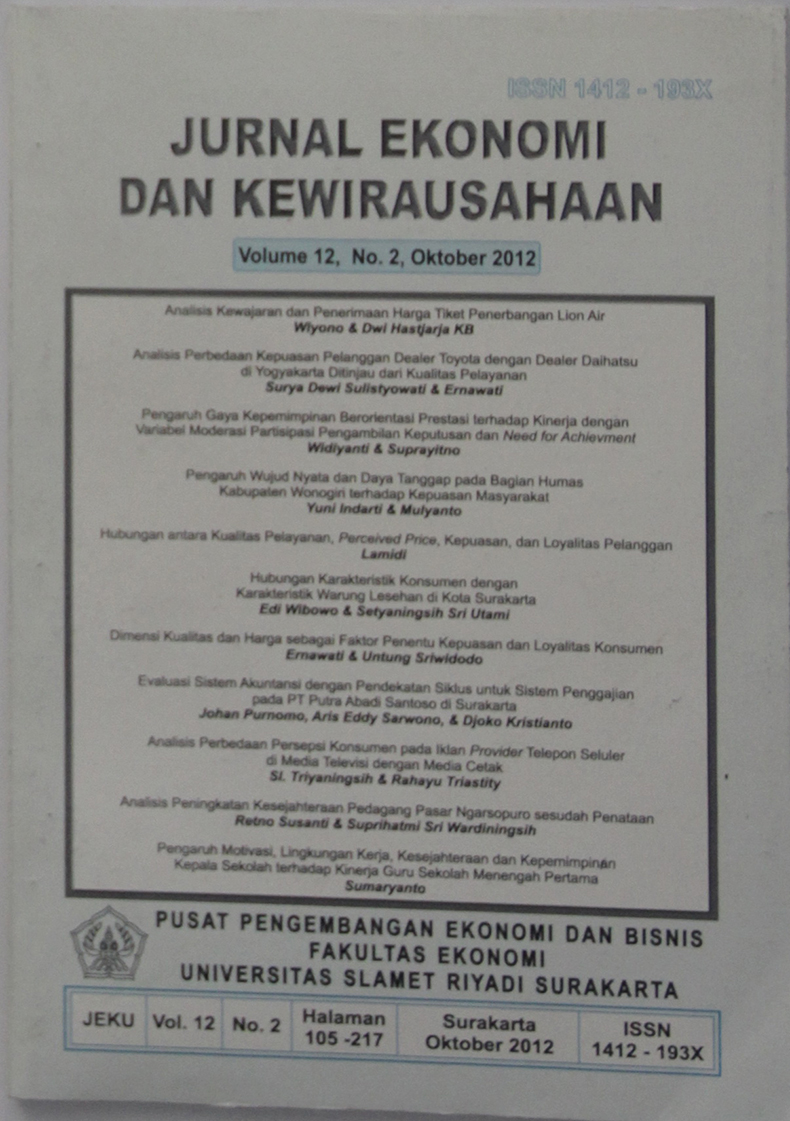ANALISIS PERBEDAAN KEPUASAN PELANGGAN DEALER TOYOTA DENGAN DEALER DAIHATSU DI YOGYAKARTA DITINJAU DARI KUALITAS PELAYANAN
Abstract
ABSTRACT
This study aims to analyze the differences in customer satisfaction Daihatsu dealer and Toyota dealer in Yogyakarta seen from tangible dimensions of service quality, tangible, reliability, responsiveness, assurance, and empathy. Object of this study is the Toyota dealer customers with Daihatsu in Yogyakarta, with a sample of 30 customers of Toyota and 30 customers Daihatsu. Data analysis techniques using test samples by Levene's homogeneity test and the test of significance of difference between two independent sample groups with independent sample t-test. The results of the test sample homogeneity (Levene's test) for all hypotheses indicate that the variance between the study sample was homogeneous, shown with p values​​ > 0.05. The results of hypothesis testing with independent sample t-test showed that (1) there is no significant difference between Daihatsu and Toyota customer satisfaction in terms of the dimensions of tangibles, responsiveness, assurance, and empathy indicated by the p values​​ > 0,05. (2) there is a significant difference between customer satisfaction Daihatsu and Toyota dealers in terms of the dimensions of reliability, indicated by p value 0.015 < 0.05.
Keywords: tangible, reliability, responsiveness, assurance, emphaty, customer satisfaction.
Downloads
Published
Issue
Section
License
Authors who publish this journal agree to the following terms:
- Authors retain copyright and grant the journal right of first publication with the work simultaneously licensed under a Creative Commons Attribution License that allows others to share the work with an acknowledgement of the work's authorship and initial publication in this journal.
- Authors can separately make additional contractual arrangements for non-exclusive distribution published by the journal (e.g., publish it in a book), with an acknowledgement of its initial publication in this journal.
- Authors are allowed and encouraged to send their work via online (e.g., in the institutional repositories or their website) after published by the journal.









